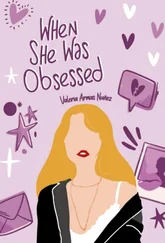Celia laughed and headed for the door. “Maybe—in another life.”
CELIA could feel that the cabin was empty. She knocked on the door, which was slightly ajar. There was no answer so she pushed it open and stepped inside. Although she had only been here once and that was almost two years ago, she did not feel like an intruder. However, the juita sitting under the table may have felt otherwise. Fat as an overfed cat, he watched Celia watching him until she backed out, having ascertained that but for the big tree rat, the cabin was empty.
The hour-long climb up the trail from the parking lot had left her hot and thirsty. She drained the last of the water from a bottle she had brought with her and took in her surroundings. She had not paid much attention to them on her previous visit, yet the place seemed familiar. This, she knew, was because of details included in the more than one hundred letters she had received from Miguel in the past fifteen months.
Besides answering her questions and remarking on things she had written him, each of his letters contained detailed descriptions of aspects of his environment that he found intriguing. Thus when she walked to the end of the porch she knew that if she looked hard in a certain place she would not immediately be able to pick out what would seem to be a brown leaf dangling near the end of a thin branch. Yet if she waited she would see the movement of a bee hummingbird sitting on her nest.
Actually that was not what she saw because that description had been in a letter from Miguel the previous week. What Celia saw was the iridescent colobri zip up to the brown thing that was not a leaf but a nest the size of a bottle cork, and perch on its rim to feed her newly hatched hummingbird babies.
Celia stepped off the porch and circled the cabin. Trees grew close on all sides, as if the builder had not cut any but found a spot between them to squeeze the cabin in. The structures at the Comandancia had been built like that too: trees left standing to prevent buildings from being seen from the air and to provide protection from the blazing sun.
Behind the cabin she saw a rain barrel on stilts. That, Miguel had explained in one of his letters, was how he managed to have running water in the sink. She found the outhouse where she expected it to be and knew to duck as she entered to avoid disturbing an elaborate spiderweb that Miguel liked to observe when he was using the facilities.
Completing her inspection of the immediate vicinity, Celia went back to the porch and collapsed into one of the rockers. She knew that Miguel went out at first light but did not know when he came back. That might be one of the few things about him she did not know. He knew as much or more about her. After all, why bother to keep secrets from someone to whom you had revealed your darkest secret before even learning his name?
She knew he called himself apolitical, although he had also told her that nature was both his politics and his religion; that he would lay down his life, take up arms, or even pray if he thought it would protect the natural environment for all time. He felt that the state capitalism of Cuba had been as destructive to the environment as corporate capitalism, and despised them equally for it. The one difference, he said, was that the former was younger and as such, perhaps more amenable to learning, self-awareness, and change. At least he hoped so and did the research he did and wrote the books he wrote in an effort to facilitate that process.
She had learned that Miguel rarely ate meat, read all sorts of books, played just a bit of guitar, and, like the poet José Martí, “el arroyo de la sierra me complace más que’l mar”—“the mountain stream pleases me more than the sea.”
He had made it clear that he would never live in a city or even a town; that when his research in the Sierra Maestra was completed he would move on to another wild mountainous place where, as he had so pointedly reminded her, there were no hospitals. She knew that in about three months’ time he would be leaving here to begin a project in Parque Humboldt on Cuba’s northeast coast. Did she know more than that about him? Did she need to know more than that, plus what her own senses had confirmed? Had he told her less about himself than she had told him about herself?
She had told him what it was like growing up in a Habana suburb, and of course, about Carolina and Liliana. She also told him about the Lago brothers whom, oddly or predictably, she rarely saw anymore. He knew that Liliana was now in Santiago, living in the Morceau household and attending medical school.
According to Franci, Liliana’s biggest adjustment had been the return to foot power. However, being her usual resourceful self, Liliana wrote to her ever-indulgent Tío José. Soon thereafter Philip was called down to the train station to pick up what turned out to be a bicycle for each of the girls. That silenced Liliana’s complaints while ensuring that she got regular exercise. Her grades, of some concern during the first two months, were now being maintained at an acceptable level.
Naturally Celia had written Miguel a good deal about her work, how each of the clinical trials had taken on a life of its own and every page of paperwork seemed to generate more. And how, when she asked to be relieved of administrative duties so she could resume working with patients, Dr. Leyva had refused. He explained that while there were innumerable younger pediatricians well trained in patient care, the “internal brain drain” caused by doctors leaving medicine to take up careers in tourism had left him with no senior doctors to replace her in administration. He reminded Celia, in words reminiscent of what she had told José about why she didn’t want to leave Cuba, that, “Our mission is to serve the Revolution’s goal of making Cuba a better nation. We do that by contributing our services where they are most needed.”
Celia had very nearly asked the question José had tossed out in that same conversation by the pool there in Viñales, as to why, exactly, it had to be her . But the more she thought about it the more the question evolved in her mind until it became, Why is it somebody else, and not me, who decides what my contribution should be?
• • •
All this and much more Celia shared with Miguel in the letters they exchanged once a week for a time, and more often now that Celia lived alone. She had felt very close to him writing those letters, knowing that he was alone too. Only now, sitting on the porch of his cabin, did she realize how different living alone was for each of them. She lived in a cement block tower many metres above the ground, with a vista of rocky coastline and vast light-reflecting ocean. He lived in a thatched-roof hut barely one step above the ground, so close that she could smell the earth. It was surrounded by tall trees that blocked the view and filtered the sunlight.
Directly in front of her, the largest tree of all was not one tree but two; a marañon wrapped tight by a strangler fig. It was one of the things Miguel had described in a letter, explaining how the fig grew up as a light vine, twining itself around the larger tree, then, upon reaching its full height, began to thicken and squeeze. Eventually the tree that had supported the fig when it had no sturdy trunk of its own would cease to be, having given up its life to sustain the seemingly weak but actually stronger fig.
Was this a metaphor for relationships? she wondered. Did one always hold the other in such an inescapable embrace that the weaker one ceased to be its own life form? Looking up at the strong but dying marañon, she understood that this was what she had feared all along, first from José and then from Luis. She had no such fear of Miguel, but was that sensible? It was true that he had never held her too tight, but Luis had seemed gentle too, had he not? And yet she had had a harder time extracting herself from Luis than from José. Perhaps she should be afraid of Miguel, but she was not. There were two sides to that coin, she reasoned, or rather, two people in any embrace. Both had a choice.
Читать дальше












